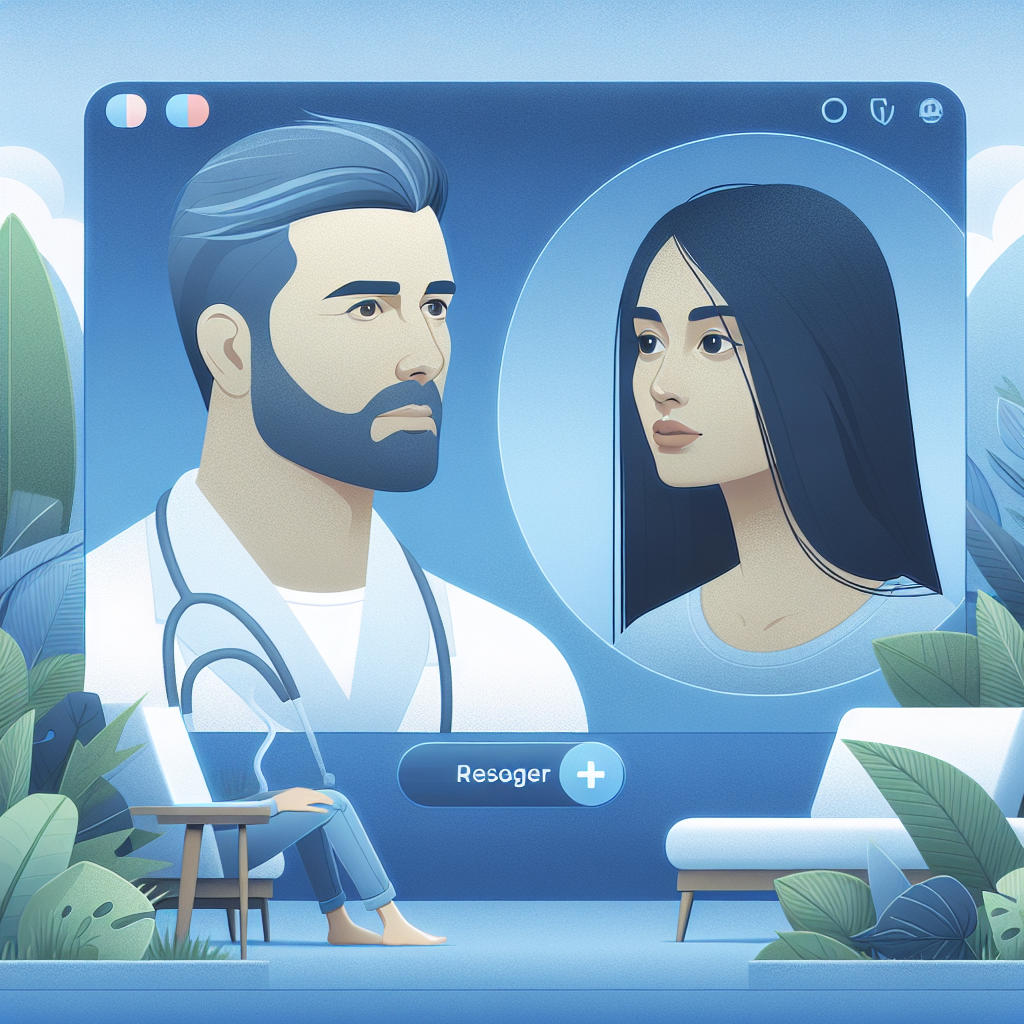-
Table of Contents

“Empowering Recovery Anywhere: Remote Addiction Support Services”
Introduction
Addiction recovery services can indeed be provided remotely, leveraging advancements in technology to offer support and treatment to individuals struggling with substance use disorders. Remote addiction recovery services encompass a range of interventions, including teletherapy, virtual support groups, online counseling, and digital health platforms. These services provide flexibility and accessibility, allowing individuals to receive care from the comfort of their own homes, which can be particularly beneficial for those in rural or underserved areas. Additionally, remote services can help reduce the stigma associated with seeking help, as they offer a level of privacy and convenience that traditional in-person services may not. With the integration of evidence-based practices and the use of secure, confidential communication tools, remote addiction recovery services have become a viable and effective option for many individuals on their path to recovery.
Benefits Of Remote Addiction Recovery Services
The advent of technology has revolutionized many aspects of our lives, and addiction recovery services are no exception. Remote addiction recovery services have emerged as a viable and effective alternative to traditional in-person treatment. These services offer numerous benefits that can significantly enhance the recovery journey for individuals struggling with addiction.
One of the most compelling advantages of remote addiction recovery services is accessibility. Traditional in-person treatment often requires individuals to travel to a specific location, which can be a significant barrier for those living in rural or underserved areas. Remote services, on the other hand, can be accessed from virtually anywhere, provided there is an internet connection. This increased accessibility ensures that more people can receive the help they need, regardless of their geographical location.
In addition to accessibility, remote addiction recovery services offer a level of convenience that is unparalleled. Individuals can participate in therapy sessions, support groups, and educational programs from the comfort of their own homes. This convenience can be particularly beneficial for those with busy schedules, childcare responsibilities, or physical limitations that make traveling difficult. By removing these logistical barriers, remote services make it easier for individuals to commit to their recovery journey.
Another significant benefit of remote addiction recovery services is the potential for increased privacy and confidentiality. Attending in-person treatment can sometimes be daunting due to the fear of being recognized or judged by others. Remote services allow individuals to engage in their recovery process discreetly, which can reduce anxiety and encourage more open and honest communication. This sense of privacy can be crucial for individuals who may feel stigmatized or ashamed of their addiction.
Moreover, remote addiction recovery services can foster a sense of continuity and consistency in treatment. Traditional in-person programs often require individuals to take time off work or other responsibilities, which can disrupt their daily lives. Remote services, however, can be more easily integrated into an individual’s routine, allowing them to maintain their commitments while still receiving the support they need. This continuity can be vital for sustaining long-term recovery and preventing relapse.
The flexibility of remote addiction recovery services also allows for a more personalized approach to treatment. Individuals can choose from a variety of programs and resources that best suit their unique needs and preferences. Whether it’s one-on-one therapy, group counseling, or self-guided educational modules, remote services offer a range of options that can be tailored to each person’s recovery journey. This personalized approach can enhance the effectiveness of treatment and increase the likelihood of successful outcomes.
Furthermore, remote addiction recovery services can facilitate the involvement of family and loved ones in the recovery process. Family support is often a critical component of successful addiction treatment, and remote services can make it easier for family members to participate in therapy sessions and support groups. This involvement can strengthen relationships, improve communication, and provide a robust support system for the individual in recovery.
In conclusion, remote addiction recovery services offer a multitude of benefits that can significantly enhance the recovery process. By increasing accessibility, convenience, privacy, continuity, personalization, and family involvement, these services provide a comprehensive and effective alternative to traditional in-person treatment. As technology continues to advance, the potential for remote addiction recovery services to transform lives and support long-term recovery is immense. Embracing these innovative solutions can inspire hope and empower individuals to overcome addiction and reclaim their lives.
Challenges And Solutions In Providing Remote Addiction Recovery Services
The advent of digital technology has revolutionized many aspects of healthcare, including addiction recovery services. However, providing these services remotely presents a unique set of challenges and solutions. One of the primary challenges is the lack of physical presence, which can be crucial for individuals in recovery. The absence of face-to-face interaction may lead to feelings of isolation, potentially exacerbating the very issues that contribute to addiction. Nevertheless, innovative solutions are emerging to bridge this gap.
For instance, telehealth platforms have been designed to offer real-time video consultations, allowing patients to connect with their therapists or counselors from the comfort of their homes. This not only provides a sense of immediacy and personal connection but also ensures that individuals receive the support they need without the barriers of travel or scheduling conflicts. Moreover, these platforms often include features such as secure messaging and virtual support groups, which can foster a sense of community and shared experience among participants.
Another significant challenge is ensuring the confidentiality and security of patient information. Remote services must comply with stringent regulations to protect sensitive data. Advanced encryption technologies and secure login protocols are essential to maintaining the trust and privacy of individuals seeking help. By implementing these measures, service providers can create a safe and confidential environment that encourages more people to seek the help they need.
Accessibility is another critical issue. Not everyone has access to high-speed internet or the necessary devices to participate in remote recovery programs. To address this, some organizations are developing low-bandwidth solutions and mobile applications that can function effectively even with limited connectivity. Additionally, partnerships with community centers and libraries can provide access points for those who lack the necessary technology at home.
Despite these challenges, the benefits of remote addiction recovery services are substantial. One of the most significant advantages is the ability to reach a broader audience. Individuals in rural or underserved areas, who might otherwise have limited access to specialized care, can now receive the support they need. This democratization of care ensures that more people have the opportunity to embark on their recovery journey.
Furthermore, remote services offer a level of flexibility that traditional in-person sessions cannot match. Patients can schedule appointments at times that are convenient for them, reducing the likelihood of missed sessions and increasing overall engagement. This flexibility is particularly beneficial for those with demanding work schedules or family responsibilities.
The integration of digital tools also allows for more personalized care. Data analytics can track a patient’s progress and provide insights that help tailor treatment plans to individual needs. For example, wearable devices can monitor physical activity and sleep patterns, providing valuable information that can be used to adjust treatment strategies in real-time.
In conclusion, while there are undeniable challenges in providing remote addiction recovery services, innovative solutions are continually being developed to address these issues. By leveraging technology, ensuring data security, and improving accessibility, remote services can offer a viable and effective alternative to traditional in-person care. The potential to reach a wider audience and provide more flexible, personalized treatment makes remote addiction recovery services a promising avenue for the future. With continued advancements and a commitment to overcoming obstacles, the dream of accessible, effective addiction recovery for all is within reach.
Q&A
1. **Question:** Can addiction recovery services be provided remotely?
**Answer:** Yes, addiction recovery services can be provided remotely through telehealth platforms, online counseling, and virtual support groups.
2. **Question:** What are some benefits of remote addiction recovery services?
**Answer:** Benefits include increased accessibility, convenience, reduced stigma, and the ability to receive support from the comfort of one’s home.
Conclusion
Yes, addiction recovery services can be provided remotely. Telehealth platforms, online counseling, virtual support groups, and digital therapy apps have proven effective in delivering treatment and support for individuals in recovery. These remote services offer accessibility, convenience, and privacy, making it easier for people to seek help and maintain their recovery journey. However, the effectiveness of remote services can vary based on individual needs and circumstances, and they may be best used in conjunction with traditional in-person treatments.



